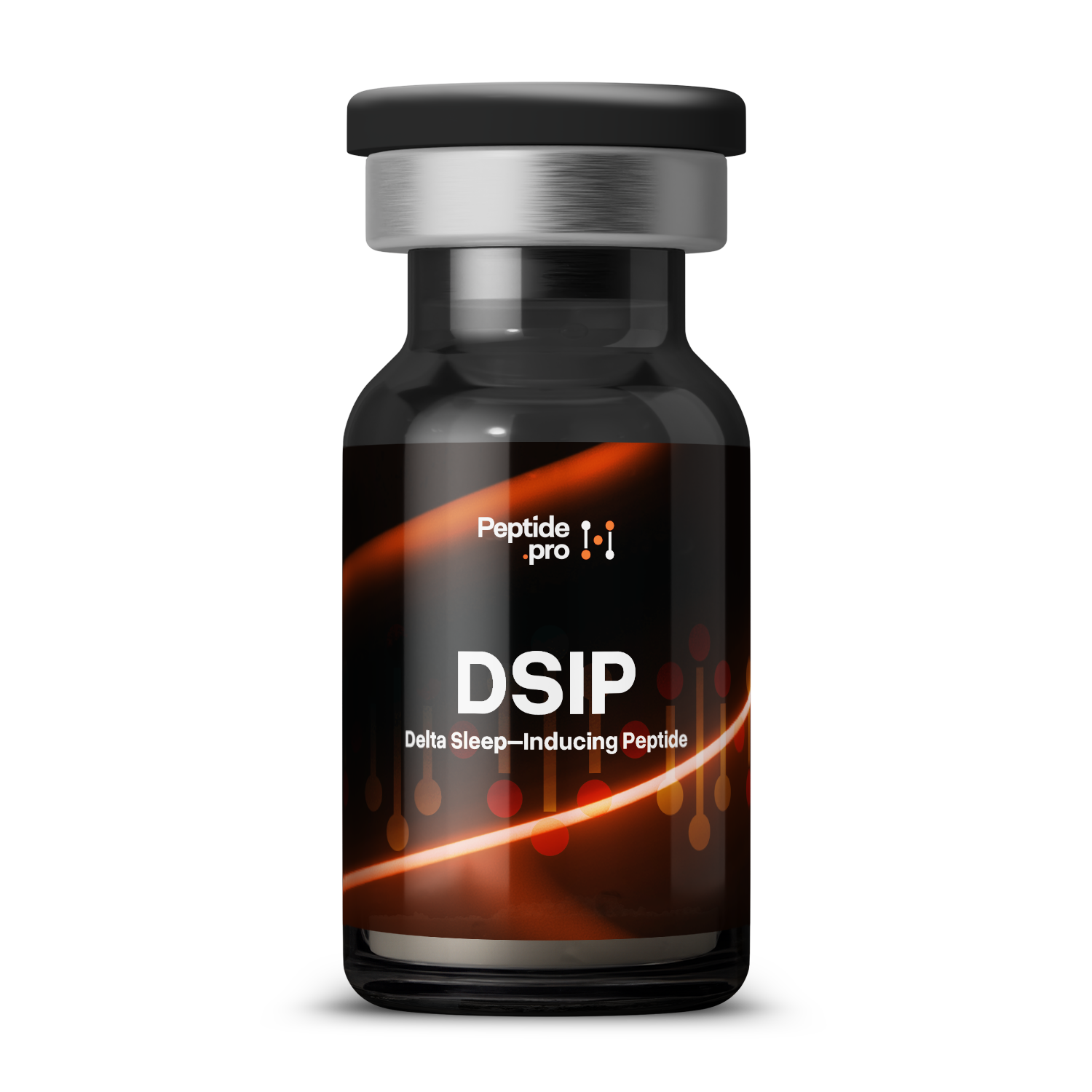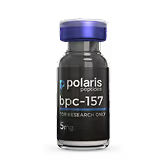DSIP
DSIP (Delta Sleep–Inducing Peptide) is a nine–amino-acid peptide studied for its ability to promote deep, restorative sleep and help balance stress hormones. When administered before bedtime, it may improve sleep quality by enhancing slow-wave sleep and reducing nighttime awakenings. It’s mainly used in sleep-research settings.
Compound Overview
About the product
The sequence of DSIP is Trp-Ala-Gly-Gly-Asp-Ala-Ser-Gly-Glu. There are no additional chemical modifications in the native form, and all residues are natural amino acids. It is synthesized by Fmoc solid-phase peptide synthesis, yielding research-grade material at over 95 percent purity. Quality control uses high-performance liquid chromatography and mass spectrometry to confirm sequence and purity.
DSIP appears to interact with central neurotransmitter systems involved in sleep regulation, including modulation of GABA (gamma-aminobutyric acid) and possibly melatonin pathways. It does not bind classical hormone receptors but may influence neuronal excitability through ion-channel effects. In human studies, DSIP administration was associated with changes in sleep architecture (distribution of sleep stages). In plain terms, it helps adjust brain signals that promote deeper or more restful sleep.
The peptide has been evaluated primarily for sleep improvement and stress-hormone modulation. In small clinical trials, DSIP reportedly increased deep (slow-wave) sleep and reduced nighttime awakenings. Some studies noted modest reductions in cortisol (a stress hormone) after administration. Further research is needed to confirm these effects and optimal use.
Reported adverse events are minimal, with occasional mild headache or transient lightheadedness. There are no documented serious safety issues or hormonal imbalances in short-term studies. Safety data for pregnancy, lactation, and long-term administration are lacking. Recommended monitoring includes sleep assessments and basic vital-sign checks during research use.
DSIP is produced by Fmoc solid-phase peptide synthesis on a resin support. Following assembly, it is cleaved from the resin and purified by high-performance liquid chromatography to >95 percent purity. Mass spectrometry confirms correct molecular weight and sequence. Manufacturing follows research-grade peptide compounding standards.
DSIP is classified for research use only and is not approved by the U.S. FDA, EMA, or other major regulatory agencies for clinical application. It cannot be prescribed or sold as a treatment. Investigators may obtain it under investigational peptide regulations, which vary by jurisdiction. No clinical or over-the-counter formulations exist.
DSIP dosage in human studies has ranged from 0.3 mg to 1 mg, typically administered by slow intravenous infusion at bedtime. No standardized dosing guidelines exist beyond these small-scale trials. Research protocols have varied, with administration frequencies ranging from single doses to nightly infusions over several days. All dosing should adhere to approved investigational protocol
- Do use only under approved research protocols with ethical oversight.
- Do monitor sleep stages with polysomnography (sleep study) during use.
- Don’t combine with other sedative agents without medical supervision.
- Don’t use in pregnancy, lactation, or in patients with uncontrolled psychiatric conditions.
- Q: Does DSIP work for chronic insomnia?
- A: Clinical data are too limited to support use in chronic insomnia.
- Q: How quickly do sleep effects appear?
- A: Changes in sleep architecture were observed on the first night of administration.
- Q: Is DSIP orally active?
- A: No; only intravenous administration has been studied.
For research use only. Not approved for medical use.


